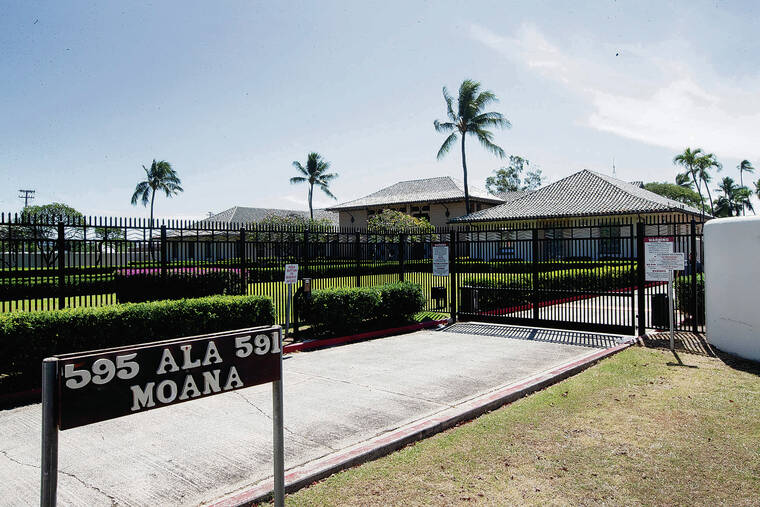It’s official, the National Bureau of Economic Research recently announced we are now in a recession. What will the economic recovery look like? The Hawaii Department of Transportation (HDOT) has already been working on projects that will help rebuild the economy, as long as our funding isn’t raided.
It may be tempting for state leaders to defer projects or raid special funds, but economists know that is not the prudent or fiscally responsible option. HDOT projects act as an economic fiscal multiplier. The more we spend improving infrastructure and keeping people working, the more it multiplies the economic recovery. On the other hand, the less we spend the more the recession hurts. The cumulative impact could redefine Hawaii’s transportation landscape, traffic flow, peak-hour congestion, as well as transportation-related environmental impacts.
In a recession, we know the economic multiplier means even more. This is because in a downturn, spending in the private sector is decreased, and therefore government fiscal activity is less likely to be ‘crowding out’ other activity. A great example of this multiplier is the 2009 American Recovery and Reinvestment Act during the Obama Administration, which estimated a multiplier of 1.5, meaning that every $1 of fiscal spending would result in $1.50 increase in real GDP. HDOT has agreed on a similar effect and a fiscal multiplier between 1.2 to 1.8 is embedded into the Department’s evolving economic recovery efforts. As the state navigates this turbulent time, HDOT can function as an important, stable source of investment in the state’s economy.
It is important to remember that HDOT does not receive traditional taxpayer money from sources like income tax. Instead, HDOT is self-sustaining and self-funded. We make revenue from sources like user fees, tenant rent, dockage and wharfage, airplane landing fees, vehicle weight and registration, and fuel taxes to pay for operations, maintenance, and capital improvements. Funds administered by HDOT are specific to the Division’s special funds, as well as Federal Aid and Grant Awards received from the U.S. Department of Transportation, Federal Highways Administration, and Federal Aviation Administration. The HDOT is not reliant on our State General Funds.
HDOT’s economic response efforts and activities will provide immediate contributions to job creation, revenue enhancement, and workforce development. We all understand the challenging times we face, and the HDOT has focused on doing its part to improve response to COVID-19 and the economic recovery.
We’re all in this together and HDOT is committed to its pivotal role in ensuring healthy economic growth to shape a new normal emerging from COVID-19. Our recovery strategies and fiscal multiplier effects will provide profound benefits to the community on the road to recovery.
•••
Jade Butay is the director of Hawaii Department of Transportation





Jade Butay may be the director of HDOT, but an economist she is not.
While extolling the benefits of government spending she seems to forget that the state (including HDOT) has no money of it’s own. Every penny it spends must first be expropriated from income earners & producers in the private sector.
She reveals this when she says “… Instead, HDOT is self-sustaining and self-funded. We make revenue from sources like user fees, tenant rent, dockage and wharfage, airplane landing fees, vehicle weight and registration, and fuel taxes to pay for operations, maintenance, and capital improvements. Funds administered by HDOT are specific to the Division’s special funds, as well as Federal Aid and Grant Awards received from the U.S. Department of Transportation, Federal Highways Administration, and Federal Aviation Administration.” Every source she cites is basically a tax of one sort or another and ALL OF IT comes from individuals and businesses in the private sector.
Government taxes, fees and levies reduce the income available to businesses and the individuals that businesses pay. This, of course, translates to reduced consumer spending, but most importantly a contraction of business investment, which is the real driver of the economy. Investment equals job creation and that is what is the most important element of economic recovery from a recession.
This emerging recession is, of course, caused by the wholly unnecessary Covid-19 lock-down of much of the country’s economic activity…something that many other countries have avoided and suffered no greater mortality rates. In fact many have kept their economies going and had lower mortality rates.
The best thing that Jade and all governments could do is reduce spending and consequently their need to bleed the private economy.
RSW
Just because of that inane and insufferable remark on
Covid-19, we are are going to take all your money and give to the Homeless!
Well said RSW
Aloha Jade, no we are not all in this together. Apparently you are still working and being laid while a huge number of us are not.
Open the economy, let the workers work, and the visitors enjoy our natural resources of paradise, and use our tax dollars to protect the Kupuna with essential nutrition.
Mahalo
Correction: you are still working and still being paid while a huge number of us are not.
Agree with RSW completely. Government intervention created the current economic problems (COVID was merely the pin that pricked the bubble) and it cannot possibly solve the problem by flooding the economy with “stimulus.” Money created out of thin air that is simply additional debt that will never be repaid. When confidence in the dollar collapses we will be Venezuela 2.0.